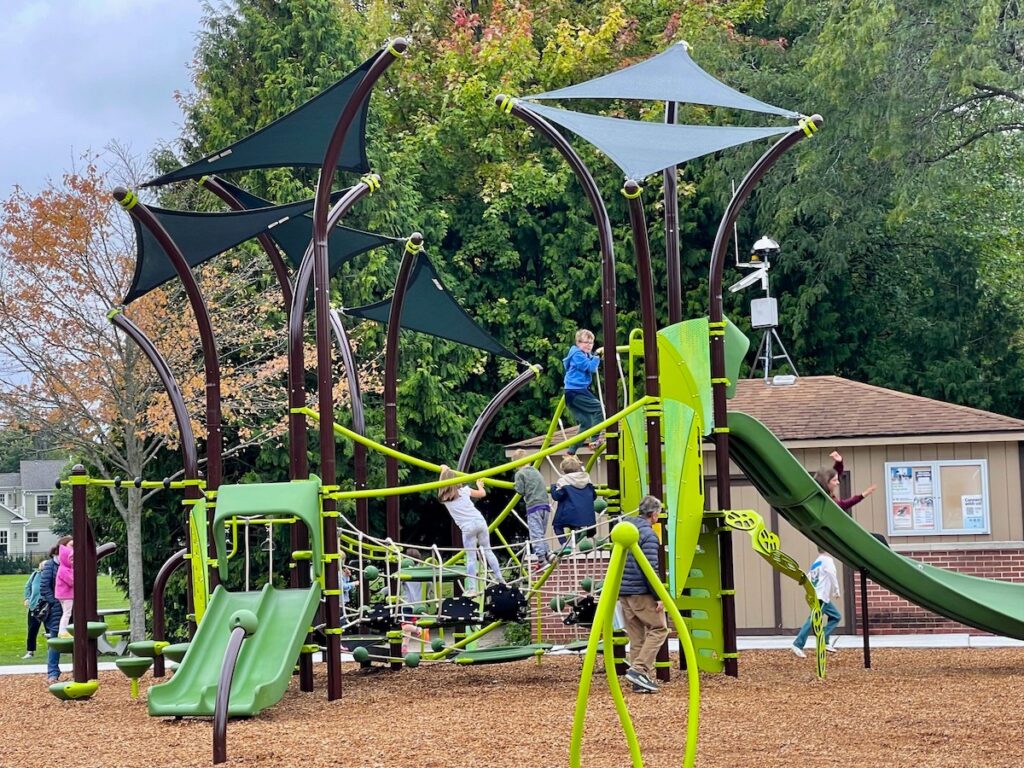
Court dismisses procedure claims in Ryan Field lawsuit
(Editor’s Note: This story was reported by Alex Harrison and originally published in the Evanston Roundtable, a neighboring independent newsroom. It was shared with The Record as part of an ongoing collaborative effort.)
A Cook County judge on Friday, April 19, dismissed all three procedural claims in the lawsuit over the City of Evanston’s approval of concerts at a rebuilt Ryan Field, leaving only one due process claim to move forward.
The 56-page lawsuit, filed by 13 stadium neighbors and the Most Livable City Association on Nov. 30, primarily consists of Count I, alleging the city violated the plaintiffs’ due process rights throughout the nearly yearlong process of considering and approving the zoning ordinance permitting concerts at Ryan Field.
Counts II, III and IV, however, focused more narrowly on claims that the ordinance’s 5-4 approval vote, with Mayor Daniel Biss breaking a 4-4 tie, failed to meet supermajority thresholds set under city and state law. The city and university, respectively the defendant and intervenor in the lawsuit, filed separate motions to dismiss the suit’s three procedural claims in February and March.
Judge Pamela McLean Meyerson found these three counts legally insufficient, meaning that even if their allegations are true, they do not state a claim on which the court has the authority to take action.
“Our first claim that the City of Evanston violated constitutional due process was not challenged in these motions and our lawsuit against the commercial rezoning of Ryan Field will continue,” wrote MLCA President David DeCarlo in a statement to the RoundTable. “While we disagree with today’s ruling on our procedural due process claims, we will keep advocating for the full constitutional guarantee of due process that protects all residents from arbitrary government decisions.”
Northwestern spokesperson Jon Yates wrote in an email to the RoundTable that the university “will reserve comment until this case is fully litigated.”
“Judge Meyerson’s ruling today confirmed that the City of Evanston took the necessary steps to ensure that the permitted uses in the U2 zoning district were appropriately amended,” city spokesperson Cynthia Vargas said in a statement (Ryan Field occupies a special zoning district designated “U2”). “The City remains committed to maintaining transparency and fairness in all of its decision-making processes and procedures.”
Home rule wins out
Counts II and III both alleged the zoning ordinance permitting concerts at Ryan Field didn’t receive enough votes for approval based on sections of Evanston’s city code. Prevailing case law has found that home rule cities like Evanston are exempt from claims of failing to follow their own rules or procedures, unless a lawsuit rises to the level of a constitutional due process claim.
Judge Meyerson said these counts “don’t allege any significant facts” other than failures to follow the city code, which “is not sufficient” to make a constitutional claim, and accordingly dismissed the counts. She also sided with the city and NU in their other arguments against these counts, finding respectively that the five votes were a proper majority of the City Council and that the ordinance allowing concerts was correctly classified as a text amendment, rather than a map amendment.
Count IV, meanwhile, alleged the city failed to reach a supermajority requirement set in the Illinois Municipal Code after stadium neighbors submitted a “frontage protest” to the concerts ordinance. The city and university pointed to the city’s home rule status as an exemption to the state code, while the plaintiffs countered that the state code should apply concurrently, since Evanston’s city code doesn’t explicitly address protests to text amendments.
The judge again sided with the city and Northwestern, finding that the city code and City Council rules “do address how a text amendment is to be passed, so there’s no gap to fill” by the state code, she said. She agreed with the “exclusion by omission” argument presented by the city at oral arguments earlier this week, meaning that the list of supermajority requirements included in the City Council’s rules legally excludes any other supermajority requirements in the state code under the city’s home rule powers.
Finally, Judge Meyerson struck the plaintiffs’ demands for damages, attorney fees and a jury trial, as moved by the city, making Friday’s hearing a clean-sweep win for the city and Northwestern on their motions.
The case will now move forward under its final claim, which alleges the city violated plaintiffs’ substantive and procedural due process rights throughout the entire approval process, rather than just at the time of voting. Judge Meyerson set a May 3 deadline for the parties to submit discovery requests, and scheduled a status call for June 26.
Copies of major filings in the Ryan Field concerts lawsuit can be viewed on Document Cloud.
The Record is a nonprofit, nonpartisan community newsroom that relies on reader support to fuel its independent local journalism.
Become a member of The Record to fund responsible news coverage for your community.
Already a member? You can make a tax-deductible donation at any time.


